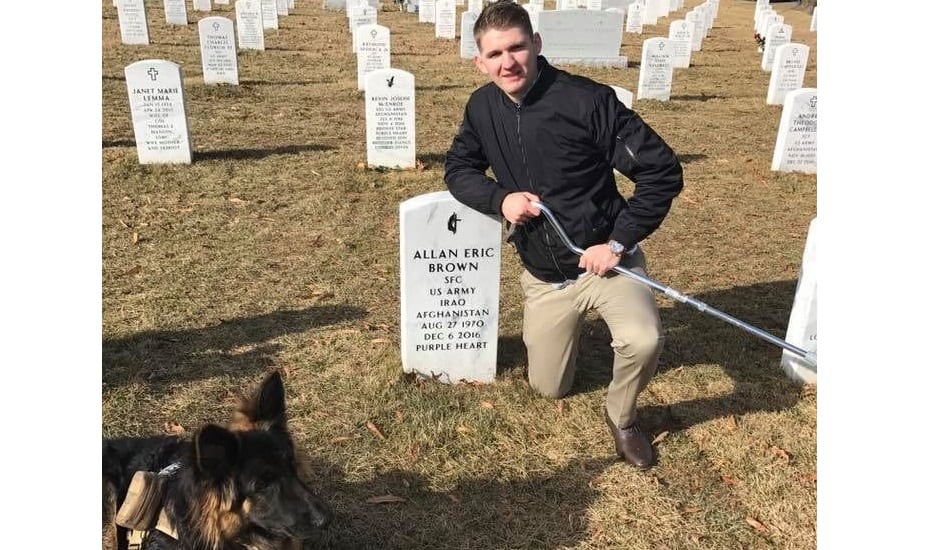Nineteen family members of the soldiers and American contractors killed as a result of the Veterans Day 2016 suicide bombing at Bagram Air Base, Afghanistan, have joined forces with eight survivors in a lawsuit against the defense contractor who employed the bomber.
A complaint filed Tuesday in Texas civil court seeks to hold Fluor Corporation, whose subcontractor Alliance Project Services hired Taliban-linked bomber Ahmad Sayeb, responsible for the resulting five deaths and 17 injuries.
“Fluor provided him access to the base. Fluor failed to screen him. They failed to supervise him. And even when serious questions were raised about his conduct and what he was up to, Fluor failed to act,” Tony Buzbee, the Marine Corps veteran and Dallas attorney representing the plaintiffs, said in a Tuesday press conference.
Nayeb, who had known past ties to the Taliban, got his job at Bagram based on a referral from a cousin who already worked there, according to an investigation released in 2017. He was assigned the non-tactical vehicle yard, where he spent four months using the base’s tools and materials to build his suicide vest.
“Fluor remains deeply saddened by the tragic events at Bagram Air Force Base on November 12, 2016,” Fluor spokesman Brian Mershon told Army Times in a statement Thursday. “It was a horrific incident and we have profound sympathy for the families of the deceased and those who were injured in the attack.”
He had multiple complaints reported about his performance, the investigation found, but Fluor did not follow up with them. They also did not go looking for him when he blew off the Nov. 12, 2016, morning shuttle taking Afghan nationals off the base, and instead donned the home-made explosive device and walked toward a gathering of troops and civilians setting up for a Veterans Day fun run.
Pfc. Tyler Iubelt, Staff Sgt. John Perry and Sgt. 1st Class Allan Brown died as a result of the blast, as did civilian contractors Peter Provost and Jarrold Reeves. Chris Colovita, Samuel Gabara, Lakeia Stokes, Maggie Bilyeu, India Sellers, Addie Ford, Robert Healy and Haylee Rodriguez, also plaintiffs, were some of the soldiers injured.
Fluor has claimed that it was the Army’s job to provide its personnel security, Buzbee said Tuesday.
“When something bad happens, because they failed to perform, then they want to hide behind the military, or the U.S. government, and pretend it’s someone else’s fault ― not their own,” he said. “We’re not going to let them do it.”
But, Mershon said, vetting employees is not part of their contract.
“The complaint misrepresents the facts surrounding the attack and does not correctly represent our responsibilities under our contract with the U.S. Army,” Mershon said. “Specifically, we provide base life support services to U.S. and Coalition forces in Afghanistan under the Logistics Civil Augmentation Program IV contract. This is not a security contract. We do not have responsibility for base security, including the vetting of employees and their base access.”
Buzbee declined to put a number on the money damages the lawsuit would seek, but said the issue was about acknowledging the fallout of the attack.
“Too many times, we focus on the people that are evil and bad ― like the suicide bomber ― and we forget the people whose lives are devastated by their acts,” he said. “We spend a lot of time talking about the people who commit these acts and we spend too little time talking about the people who are impacted by these acts.”
RELATED

Earlier this year, another survivor of the attack filed his own lawsuit against Fluor, in South Carolina federal court.
Spc. Winston Hencely noticed Nayeb approaching that day, and when the civilian did not respond to his questions, grabbed Nayeb just before the vest went off, according to his complaint.
"The projectiles that penetrated Hencely’s brain and chest were the property of Fluor — pieces of nuts and bolts the bomber obtained from Fluor despite the fact his job did not require he have access to such materials,” the 22-year-old soldier’s attorneys wrote in a press release on Feb. 20.
Meghann Myers is the Pentagon bureau chief at Military Times. She covers operations, policy, personnel, leadership and other issues affecting service members.





